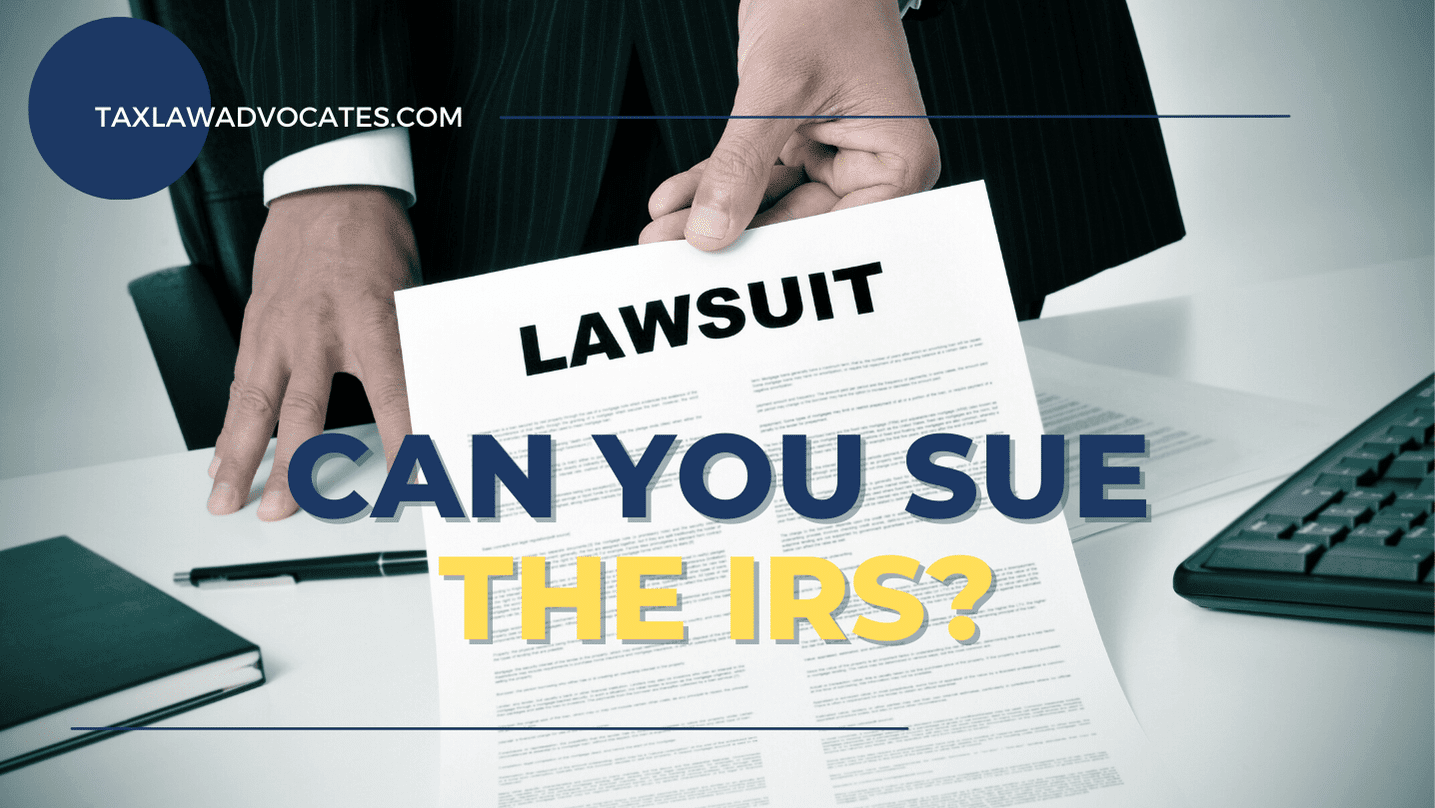Many people find themselves in disagreements with the IRS over how much they owe or what their rights are. So, can you sue the IRS? Well, yes, but there’s more to the story so read on to learn more about your taxpayer rights in dealing with the IRS.
Taxpayer Rights in Dealing with the IRS
The US Tax Code offers a set of taxpayer rights that protect taxpayers from any abuse or discrimination by the IRS. These rights include:
- The right to be informed of why you owe taxes and how much you owe
- The right to have your records kept confidential
- The right to challenge proposed adjustments to your tax return
- The right to appeal any decisions made by the IRS
The Internal Revenue Service also has an internal appeals system which allows taxpayers to dispute their cases without having to go through the court system.
Can You Sue the IRS?
Yes, it is possible to sue the IRS if you feel that they have violated one of your taxpayer rights. However, it is important to remember that suing the IRS is not always easy or successful. If you decide that suing them is necessary, it’s best to consult a qualified attorney who can help guide you through this process.
Common reasons for suing the IRS include allegations of discrimination and abuse of power by agents working for them. Additionally, if you believe that you were wrongly taxed or assessed an incorrect amount, then filing a lawsuit may be your only option for getting justice and resolving your dispute with the government agency.
When Can You Sue The IRS?
You can sue the IRS for any misdeeds on their part. However, there are certain conditions that must be met in order for your case to be heard by a court. First, you must have exhausted all other options for resolving your dispute with the IRS, such as filing an appeal or requesting an audit reconsideration. If those attempts fail, then you may have grounds to sue the agency.
If you believe that the IRS has violated your rights in any way, then you may be able to take legal action against them. This could include issues such as unlawful seizure of property or denial of due process when collecting taxes owed by you. Finally, if you believe that the IRS has acted negligently in any way, then you may also file a suit against them.
How To Sue The IRS
If you decide to take legal action against the Internal Revenue Service, there are certain steps that need to be taken from the outset.
First, it’s important to understand that suing the federal government is no small undertaking and can often require significant resources and time investment on your part. It’s therefore important to make sure that taking this route is worth it for your particular situation before going ahead with it.
Second, if you decide to pursue legal action against the IRS, you will need to find an attorney who specializes in tax law and has experience dealing with cases involving the federal government — such as those brought against the Internal Revenue Service — as well as experience in representing individual taxpayers who are suing them. Your attorney will guide you through each step of this process and advise whether pursuing a lawsuit is even necessary in your case or not.
Contact Tax Law Advocates
While it is possible to sue the Internal Revenue Service if they have violated one of your taxpayer rights, this process can be quite difficult and time consuming. Consult with a qualified attorney before deciding the best course of action. They will explain your options and offer advice based on their experience in dealing with similar cases. Doing so will give you peace of mind knowing that you have explored all avenues while trying to resolve disputes between yourself and the Internal Revenue Service.






